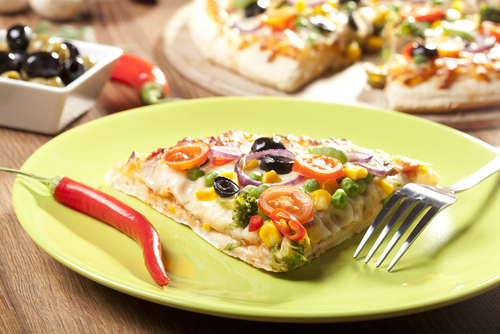Planning Vegetarian Meals That Meet Your Nutritional Needs
The general belief that vegetarian diets do not meet the needs of most people is one of the greatest nutrition misconceptions there is.


The general belief that vegetarian diets do not meet the needs of most people is one of the greatest nutrition misconceptions there is.
In addition to being low in saturated fat, sodium and cholesterol and yet high in fibre, vitamins, minerals and disease-busting antioxidants, carefully planned vegetarian diets have been demonstrated to not only be adequate but in fact be more healthful than meat containing ones.
The key to success lies in proper planning and ensuring variety. There are however a few nutrients that the average vegetarian should consider.
Calcium: Essential for strong bones and teeth, adequate calcium intakes may be especially problematic for the vegan population. Milk and dairy products are rich in calcium so lacto-ovo vegetarians should get enough of this vital mineral from foods such as milk, yogurt and cheese.
Pescatarians can increase calcium intakes by consuming dried fish with the bones (Okporoko, Nwanyashishi) and sardines. Vegan non-dairy sources of calcium include fortified juices, fortified soy and rice milk, leafy green vegetables, beans, soy nuts, almonds and almond butter, blackstrap molasses and figs.
In addition, a 2001 study published in the Journal of Food Composition and Analysis suggested that sorrel (zobo) leaves, amaranth (efo tete) leaves, okra (okro) leaves and baobab leaves are high in calcium.
Iron: Meat eaters get most of their iron from meat and animal products so vegetarians can be somewhat challenged in meeting their needs. All classifications should enjoy regular servings of iron rich vegetarian foods like dried beans, dark green leafy vegetables like spinach, cassava leaves and pumpkin leaves.
Dried fruits, potatoes eaten with the skin and fortified breads and cereals are also good choices. Local fruits such as passion fruit and tamarind also provided a fair amount of dietary iron. For improved absorption, all plant sources of iron should be eaten together with a good source of vitamin C such as fruits and vegetables.
Protein: Protein is the hot button issue for most vegetarians who mistakenly think that meat is the only source of great protein. Beyond meat, steak and goat, there is a wide variety of protein choices that fit in a vegetarian diet.
Beans, cowpeas, Bambara nuts, legumes, whole grains, soya products and most nuts are all examples of protein packed plant foods. Lacto-ovo vegetarians can also get protein from milk, dairy and egg products while fish and seafood are terrific protein sources for pescatarians.
Vitamin B12 (Cobalamin): Vitamin B12 is generally lacking in the vegetarian diet because it is mostly found in animal products. Some fortified cereals, black strap molasses and nutritional yeast can provide the vegan with B12 but due to low availability, vegans should consider regular supplementation.
Vitamin D: Although vitamin D is abundantly available in pure sunshine, the high melanin concentration of our (dark) skin reduces the body’s ability to absorb it. Pescatarians can enjoy doses of vitamin D by including fatty fish such as salmon and tuna as well as fish liver oils.
Lacto-ovo vegetarians can obtain it from eggs and cheese while the vegan can obtain doses of vitamin D from mushrooms that have been exposed to sunlight as well as from fortified cold cereals, juices and soy milk. A supplement may be necessary if such foods are not available.

To ensure an adequate diet, the Academy of Nutrition and Dietetics, a leader in the Food and Nutrition arena recommends that as allowable by their classification, vegetarians:
1. Eat a variety of foods, including whole grains, vegetables, fruits, legumes, nuts, seeds, dairy products and eggs.
2. Eat whole, unrefined foods often and minimize intake of highly sweetened, fatty and heavily refined foods.
3. Include a variety of fruits and vegetables
4. Limit high-fat foods like cheese and fried foods because they add excess calories and saturated fat. In addition, they often displace healthier plant foods.
5. Include iron supplements for infants who are exclusively breast fed after 4 to 6 months. If sun exposure is limited, vitamin D supplements should also be added. Breast-fed vegan should receive vitamin B12 supplements if the mother’s diet is not fortified.
6. Not restrict dietary fat in children younger than 2. For older children, foods higher in fat (eggs, nuts, seeds, avocados and vegetable oils) help meet nutrient and energy needs.
While it may seem difficult, planning a vegetarian diet that meets your nutritional needs is highly possible. Seek the help of a trained dietitian to answer your specific questions related to how you should eat as well as help in ensuring your diet meets all your nutrient needs for a healthy you.
Here’s to your health!
